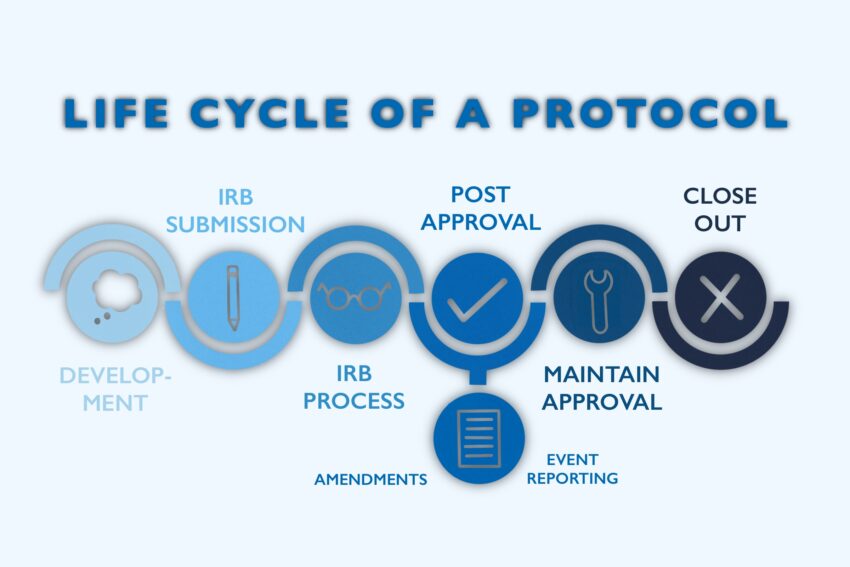By Hyangeun Ji
In my previous post, I introduced the Virtual Blockson project along with our research goals on the role of virtual reality in education. Since then, Dr. Tim Patterson, Jasmine Clark, and I have received approval for our Institutional Review Board (IRB) protocol, allowing us to proceed with our human subjects research involving history teachers and learners.
This blog post aims to demystify the general procedures involved in human subject research, with a particular emphasis on the critical role of IRB approval. Additionally, I will share insights into our upcoming pilot study with history teachers, the integration of virtual reality (VR) technology in educational settings, and our approach to gathering and utilizing feedback to refine our VR-based history toolkit and inform the future development of the Virtual Blockson game.
What Does the IRB Process Look Like?
Conducting research with human subjects is a fundamental aspect of academic inquiry across various disciplines, including psychology, sociology, education, and health sciences. For human subject research that involves interaction with individuals or the collection of identifiable private information, IRB approval is needed to conduct a study. In education studies, human subject research can range from conducting surveys and interviews with students, teachers, parents, and stakeholders to performing experiments and observational studies using instructional technologies. This can include the use of virtual reality (VR) and adaptive learning systems, as well as classroom recordings and learning analytics data collected from eye movement, gesture, and physiological data.
The IRB review process begins with the submission of a research protocol, which details the study’s objectives, methodology, and ethical considerations. Researchers are also required to complete Collaborative Institutional Training Initiative (CITI) training, which educates them on the ethical principles and regulatory requirements for human subject research. The IRB evaluates the proposal to ensure that it complies with ethical standards; IRB may request modifications before granting approval. This process is essential for safeguarding participant welfare and maintaining the integrity of research.
Why is IRB Approval Needed?
The IRB is an ethical review board that ensures research involving human subjects is conducted in accordance with ethical standards and federal regulations. The main objectives of the IRB are to protect the rights, privacy, and welfare of research participants. IRB approval is a prerequisite for research involving human subjects in both academic and clinical settings to ensure that studies are ethically sound and that participants are not exposed to unnecessary risks.
What Could Be Involved in an IRB Protocol?
An IRB protocol typically includes a comprehensive description of the study, including its purpose, design, and procedures. The protocol also outlines how data will be collected, stored, and analyzed, ensuring the privacy and confidentiality of participant information.
For our project, “The Virtual Blockson,” our IRB protocol included several critical aspects:
Study Overview: We included a comprehensive overview of our research aims, which explore the impact of VR on enhancing historical empathy among high school students using the Charles L. Blockson Afro-American Collection. We also detailed our study plans, which involve two iterations with different VR experiences. While the Virtual Blockson game development is still ongoing, we decided to do the first iteration of a pilot test using the existing immersive VR game, I Am A Man, which offers an interactive documentary experience with historical films, photographs, and voice narrations of Civil Rights participants. In the second iteration, after the Virtual Blockson game is developed, we will repeat what we did in the first iteration with teachers and students to gain more insights into their historical empathy and immersion.
Recruitment Plan: We developed our recruitment plan, focusing on participants from the School District of Philadelphia. We provided the actual recruitment material, which will be distributed to potential teacher participants via email.
Consent Process: We provided a thorough description of the consent process, ensuring that participants under 18 provide assent while their parents or guardians complete consent forms.
Data Management and Analysis: We outlined our approach to both quantitative and qualitative analysis methods, such as the Analysis of Variance (ANOVA) and coding of focus group interviews, to evaluate the impact of the VR experience.
Risks and Benefits: We assessed the minimal risks associated with our study and highlighted the potential benefits, including increased fluency in using VR technology and enhanced empathy during the VR task.
We also submitted separate documents that detailed information regarding student and teacher consent forms, parental consent forms for minors, recruitment flyers, and support letters.
Navigating the IRB approval process for the Virtual Blockson project offered me a unique perspective on the intricacies of conducting research with human subjects. One aspect that stood out was the need to obtain additional IRB approvals when collaborating with external sites or institutions. Specifically, we followed the IRB process of the School District of Philadelphia, which required us to submit our research protocol along with the recruitment plan, scripts, proof of Temple IRB approval, consent forms, instruments used in the study, and clearances. This was a reminder of the complexity of research that extends beyond the boundaries of Temple University and the importance of understanding different IRB processes and requirements.
Writing the IRB protocol for the Virtual Blockson project required careful consideration to ensure it does not disrupt the educational environment. We had to meticulously plan our intervention to be respectful of the students’ and teachers’ time while still achieving our research objectives. Ensuring that our study adhered to ethical standards, especially with the use of VR technology, required meticulous planning and attention to detail. Reflecting on this experience, I appreciate the importance of thorough preparation and the value of clear communication with all stakeholders involved in the research process.
More Information
For those interested in learning more about IRB procedures and requirements, I recommend visiting Temple University’s IRB website. It provides valuable resources and guidance for researchers navigating the IRB approval process.
Looking Ahead
In this blog post, I have discussed the critical role of IRB approval in conducting human subject research, particularly in the context of our Virtual Blockson project.
Having recently received IRB approval, we are now extending invitations to history teachers in the School District of Philadelphia to participate in our pilot study. During the spring semester, interested teachers will have the opportunity to visit the VR lab at Loretta C. Duckworth Scholars Studio for an immersive VR experience.

Following their VR experience, teachers will participate in in-depth focus group discussions. These discussions will highlight the challenges they encountered during the VR experience, their needs for integrating VR technology into their classrooms, and their suggestions for assignments or activities that could enhance the VR learning experience. The insights gathered from these conversations will be instrumental in refining our approach and developing an effective VR-based history toolkit.
The outcomes of this pilot study will be foundational for our ongoing research with teachers and students and the future development phase of the Virtual Blockson game.

Over the summer, our research team will be conducting a preliminary analysis of the data collected from the pilot study with the teachers, which will then guide our pilot study with the students in the Fall and the second phase of the research with the Virtual Blockson game next year.
After the summer, I will provide further updates on “I Am A Man”, the VR game selected for the pilot study, the key findings from this initial phase, and our plans for advancing the research. Please stay tuned for our upcoming updates!
